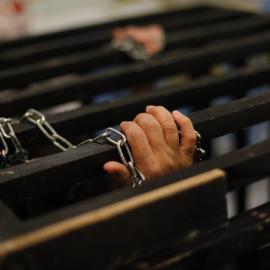To the Editor:
Carol Lancaster rightly emphasizes the need to shore up peacekeeping efforts in an era of globalization and increasing civil conflict. But her assertions of "signs of mission creep" at the World Bank, particularly with regard to "a program to finance the transition from war to peace, which is better undertaken by aid agencies that specialize in post-conflict relief and recovery" are way off the mark.
The World Bank was founded at the end of World War II to advance national reconstruction and development worldwide. During the Cold War, reconstruction tended to get ignored as the bipolar world focused on development as an instrument of influence. The end of the Cold War has initiated a more open discussion of the overlapping political and economic faces of development. With nearly half of the countries in Africa either in or emerging from interstate or intrastate conflict, it would be grossly negligent on economic grounds (such as protecting assets and enabling investment) if not on moral grounds (such as reducing hunger, malnutrition, unemployment, and fear) if the World Bank did not focus more on reducing poverty and building peace. After all, the connection between the two is undeniable: 14 of the 20 poorest countries in the world are currently in or emerging from armed conflict.
Of course, the World Bank is neither naive nor bold enough to assume that it can or should battle poverty alone. The bank's president, James D. Wolfenson, has done much to build partnerships with United Nations agencies, governments, nongovernmental organizations, civil society, foundations, and the private sector. Since the creation of the bank's Post-Conflict Unit a short three years ago, it has participated with U.N., bilateral, and multilateral agencies in more than 14 demobilization and reintegration programs worldwide. It has launched governance and anticorruption programs in a growing number of war-torn countries, working with Transparency International and others to address the rule of law, especially transparency and accountability in government, financial, bureaucratic, and judicial systems. And it has formed working relationships with the U.N. High Commissioner for Refugees, the International Committee of the Red Cross, the U.N. Development Program, and a host of other donor partners to close the gaps between relief and development. Together these groups have worked to rebuild social and human capital, provide livelihoods, and revitalize basic services in war-ravaged countries ranging from Rwanda to Mozambique. At the same time, the World Bank is continuing to work with the International Monetary Fund toward financial and economic policy reform in these countries.
NAT J. COLLETTA
Head, Post-Conflict Unit, the World Bank
